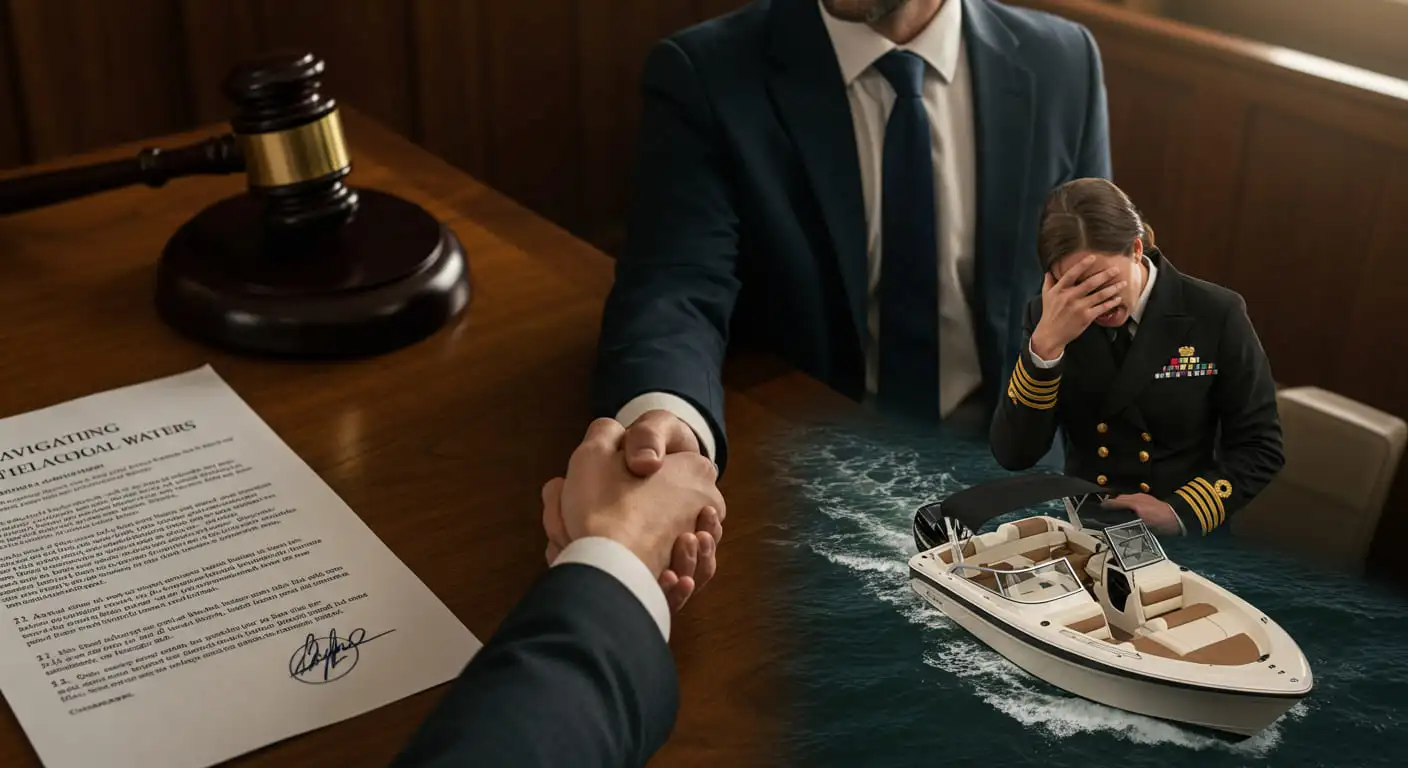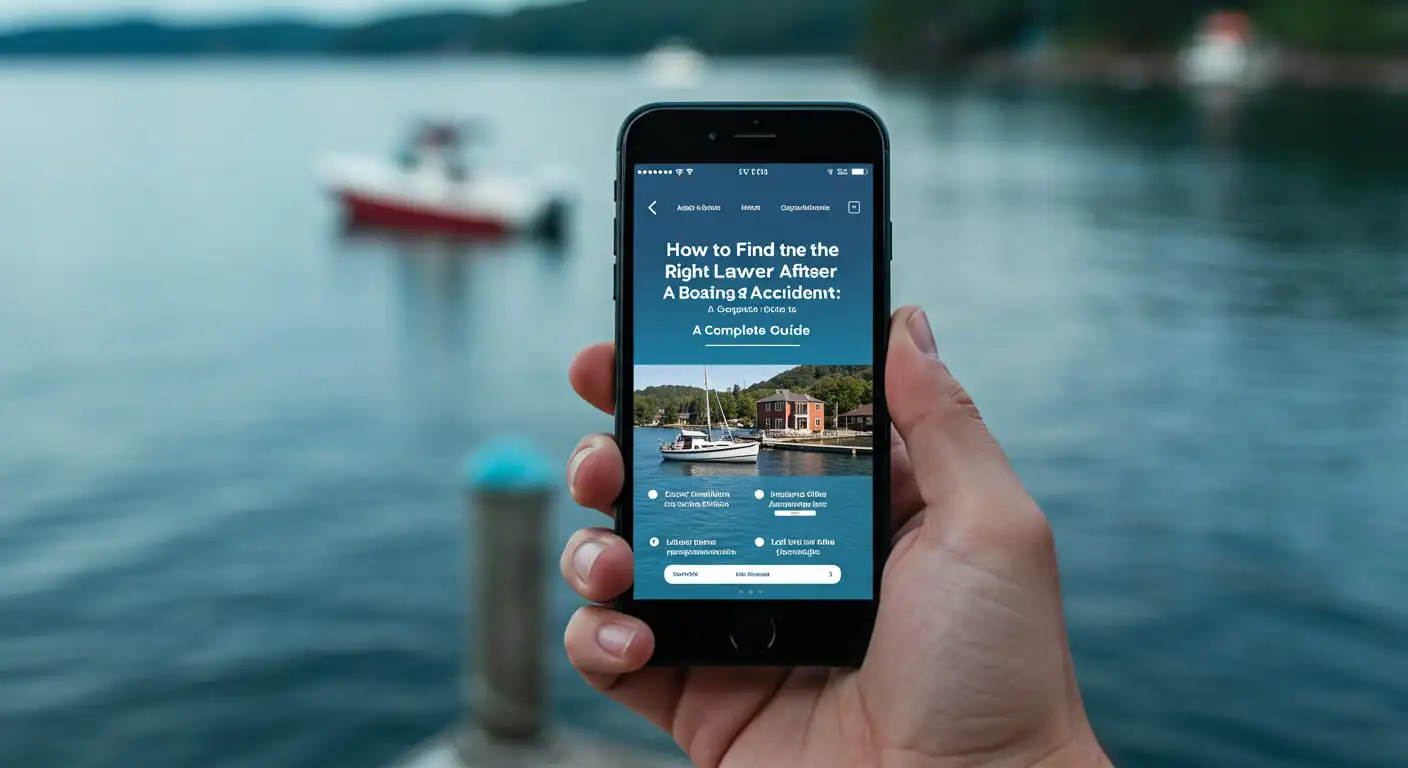Discover the top 5 mistakes to avoid when filing a marine injury claim. Protect your rights, maximize compensation, and navigate the legal process smoothly.
What You Need to Know About Marine Injury Claims
Working on or near the water involves unique hazards, and the laws governing maritime injuries—such as the Jones Act and the Longshore and Harbor Workers’ Compensation Act (LHWCA)—offer protections tailored to these risks. However, these laws come with specific rules and deadlines that can be tricky to follow. Understanding how to properly file your claim is crucial to avoid costly setbacks.
When you or a loved one suffers an injury aboard a vessel—whether fishing boat, cargo ship, or offshore platform—navigating the legal waters can be daunting. Missing deadlines, mishandling evidence, or speaking out of turn can sink even the strongest case.
To help you maximize recovery and protect your rights under the Jones Act, Longshore and Harbor Workers’ Compensation Act (LHWCA), or general maritime law, here are five of the most common mistakes to avoid when making a marine injury claim.
By steering clear of these pitfalls—and following our practical tips and real-world examples—you’ll strengthen your claim, avoid costly delays, and ensure you’re in the captain’s chair throughout the process.
1. Missing the Statute of Limitations
One of the most fatal errors is filing too late. Every maritime claim has a strict time limit:
- Jones Act (seamen): Claim must be brought within three years of the injury or discovery of harm.
- LHWCA (dockworkers): You have one year to report the injury to your employer and two years to file for benefits.
- Unseaworthiness or wrongful death: Usually a three-year window under general maritime law.
Example:
John, a deckhand injured by faulty rigging, waited four years to contact an attorney. His seaman’s Jones Act claim was dismissed as time‑barred—no exceptions.
Tip: Mark critical deadlines on your calendar the day you’re injured. If you miss them, a court will likely refuse to hear your case.
2. Failing to Document Injuries Properly
Detailed, contemporaneous evidence is the anchor of any successful claim. Too often claimants:
- Take no photos of hazardous conditions (wet decks, frayed ropes).
- Skip logging the accident in the vessel’s official incident report.
- Neglect to obtain witness statements from crewmembers or supervisors.
Example:
Maria slipped on oil pooled on the deck; she treated her aches at home and never photographed the slick surface. Weeks later, without proof of the hazard’s existence or company knowledge, her claim for punitive damages stalled.
Tip: Immediately after your accident, document everything. Use your phone to snap clear images, note the date/time/location, and obtain brief signed statements from anyone who saw what happened.
3. Not Seeking Prompt and Consistent Medical Treatment
Delaying medical care—or seeking treatment at different clinics—creates gaps that insurers and defense attorneys will exploit:
- Early X‑rays, MRIs, and specialist reports establish causation and severity.
- Skipping doctor visits can lead insurers to argue your injuries weren’t serious—or weren’t caused by the incident.
- “Doctor‑shopping” raises suspicion that you’re exaggerating symptoms.
Example:
After a fall on a ladder, Peter shrugged off his back pain for weeks. When he finally saw a specialist, the doctor noted the injury was “chronic” rather than acute. The insurer refused to pay for most of Peter’s physical therapy, claiming no proof the fall was the cause.
Tip: Visit a qualified maritime medical examiner or emergency department as soon as possible. Follow all prescribed treatments, attend every appointment, and keep copies of all medical records and bills.
4. Communicating Directly with Your Employer or Insurer
Insurance adjusters and company representatives will often contact injured workers right away. Any recorded statement, email, or text can be used against you:
- They may downplay your injury or imply you’re “not that hurt.”
- Admitting you “feel better” on some days can weaken your claim for future care.
- A casual “sorry” could be misinterpreted as admitting fault.
Example:
Steve responded to his employer’s email asking, “Are you okay?” He replied, “I’m fine now,” not realizing this was entered into the claim file. Later, when he sought compensation for ongoing pain, the insurer pointed to his own words and denied further benefits.
Tip: Politely decline any written or recorded statement without consulting an attorney. Direct all communications through your lawyer to avoid inadvertent admissions.
5. Not Hiring an Experienced Maritime Injury Lawyer
Maritime law is a specialized field with its own statutes, case law, and complex procedures. Attempting to handle your claim solo or with a general practitioner can leave:
- Valuable damages unclaimed (loss of future earning capacity, punitive damages).
- Procedural missteps (wrong venue, improper service, misfiled motions).
- Weaker negotiation leverage against well‑funded defense teams.
Example:
Lucy hired a local personal injury attorney unfamiliar with the Jones Act. He settled her case quickly for medical bills only—omitting compensation for pain and suffering, future wage loss, and attorney’s fees guaranteed under the statute.
Tip: Seek counsel from a lawyer who concentrates exclusively on maritime injury cases. A specialized attorney will navigate statutes of limitation, jurisdictional rules, and complex damage calculations on your behalf.

Conclusion | Marine Injury Claims
Marine injury claims involve navigating a sea of procedural rules, tight deadlines, and fierce insurance defenses. By avoiding these five common mistakes—missing filing deadlines, failing to document properly, delaying medical care, speaking directly to insurers, and skimping on legal expertise—you’ll chart a course toward a stronger, more successful claim.
If you’ve been injured at sea or on navigable waters, don’t wait. Begin documenting your injury today, seek prompt treatment, and consult a qualified maritime attorney to protect your rights and maximize your recovery.
Leave a reply














